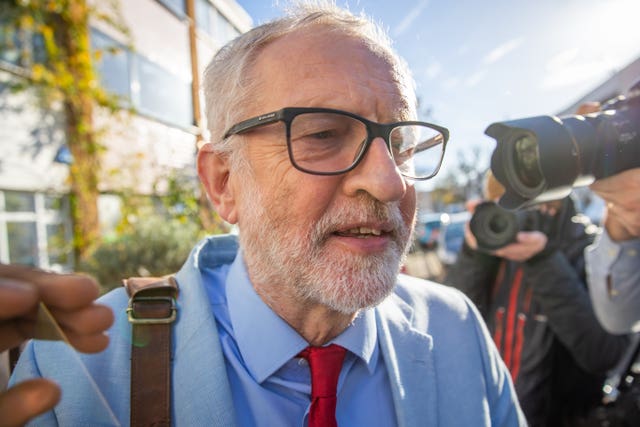Corbyn: ‘Crazy beyond belief’ for UK to enter defence pact with US and Australia
The former Labour leader said he wanted to live in a peaceful world.

Jeremy Corbyn has said Britain should stay out of a defence pact that he fears could see the country drawn into a new cold war with China.
Earlier this month, Boris Johnson announced that the UK would join a new pact with the United States and Australia – dubbed Aukus – where the three allies agreed to co-operate on the development for the first time of a fleet of nuclear-powered submarines for the Australian navy.
The move, widely interpreted as an attempt to check China’s growing military assertiveness in the Indo-Pacific, was swiftly condemned by Beijing as a “geopolitical gaming tool”.
The Prime Minister insisted it was not intended as an “adversarial” move against China but was questioned in the Commons what the implications were if China should attempt to invade Taiwan.
He said the UK “remains determined to defend international law”.
The former leader said: “When Biden said that he wasn’t very keen on nation-building any more around the world, a succession of Tory MPs and not a few Labour MPs as well got up and said, ‘well, if Biden won’t play the global role, we will… we’ve already got an aircraft carrier in the South China Sea, and if Taiwan is under threat from China, we’re gonna get stuck in’.
“Hang on a minute, they’re actually saying that this country – 65 million people, north-west coast of Europe, tiny proportion of the world’s population – should have a global arms presence and involve ourselves in an alliance that can only lead to rearmament of the West and of China, and of Russia at the same time.
“This is crazy beyond belief, surely Covid has taught us something that real inequality is health inequality, is poverty, and the refugees are the ultimate victims of that.
“I want to live in a peaceful world.

“But the idea we’re going to sort of bomb our way into these things is simply not very sensible.
“Let’s learn the lessons of Afghanistan and Iraq, of Libya, of Syria, and talk to the 70 million people who are refugees around the world, many of whom are victims of war. We can do things differently.”





